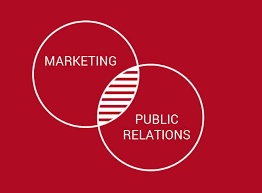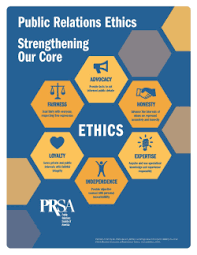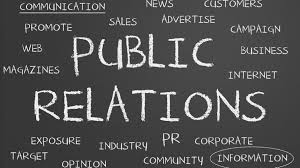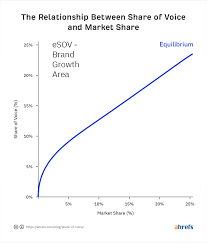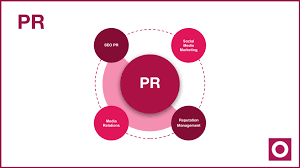Discover the Top 10 PR Agencies for Expert Communication Strategies
Top 10 PR Agencies
Public Relations (PR) agencies play a crucial role in helping businesses enhance their reputation, manage communication strategies, and build strong relationships with their target audience. Here are the top 10 PR agencies known for their expertise and excellence in the industry:
- FleishmanHillard: Known for its global reach and strategic approach to PR campaigns.
- Edelman: A leading agency with a focus on integrated communication solutions and brand reputation management.
- Weber Shandwick: Specializes in storytelling and digital engagement to create impactful PR campaigns.
- Ogilvy Public Relations: Offers a wide range of PR services, including media relations, crisis management, and influencer marketing.
- Ketchum: Known for its creativity and innovative approach to PR strategies that drive results.
- Hill+Knowlton Strategies: Offers expertise in corporate communication, public affairs, and crisis management.
- Burson Cohn & Wolfe (BCW): A global agency with a focus on data-driven insights and creative storytelling.
- Ruder Finn: Specializes in integrated communication solutions that drive brand awareness and engagement.
- Golin: Known for its bold approach to PR campaigns that challenge conventional norms.
- M&C Saatchi Public Relations: Offers strategic communication solutions that resonate with target audiences and drive brand loyalty.
These top 10 PR agencies have established themselves as industry leaders through their innovative approaches, creative campaigns, and commitment to delivering exceptional results for their clients. Whether you’re looking to enhance your brand’s reputation, launch a new product, or navigate a crisis situation, these agencies have the expertise and experience to help you achieve your communication goals.
Top 9 Tips for Choosing the Best PR Agency for Your Needs
- Research the agency’s client list to ensure they have experience in your industry.
- Check for case studies or success stories that demonstrate their effectiveness.
- Evaluate their media connections and relationships with journalists.
- Look for an agency that offers a comprehensive range of services, including digital PR.
- Assess the agency’s understanding of your brand and target audience during initial meetings.
- Consider the size of the agency; larger agencies may offer more resources, while smaller ones may provide personalised attention.
- Ask about their reporting and measurement tools to track campaign performance.
- Ensure there is a clear communication process and regular updates on progress.
- Compare pricing structures to find an option that fits within your budget without compromising quality.
Research the agency’s client list to ensure they have experience in your industry.
When considering top PR agencies, it is essential to research the agency’s client list to ensure they have experience in your industry. By examining the types of clients an agency has worked with in the past, you can gauge their expertise and understanding of your specific sector. Choosing a PR agency with relevant industry experience can lead to more tailored and effective communication strategies that resonate with your target audience and align with your business objectives. Conducting this research can help you find an agency that is well-equipped to meet your unique PR needs and deliver successful outcomes for your brand.
Check for case studies or success stories that demonstrate their effectiveness.
When considering the top 10 PR agencies for your business needs, it is essential to check for case studies or success stories that demonstrate their effectiveness. By reviewing past campaigns and projects, you can gain valuable insights into how these agencies have helped other clients achieve their communication goals. Case studies provide tangible evidence of the agency’s capabilities and showcase their ability to deliver results. This information can help you assess whether the agency’s approach aligns with your objectives and determine if they are the right fit to support your brand’s communication strategies.
Evaluate their media connections and relationships with journalists.
When considering the top 10 PR agencies, it is essential to evaluate their media connections and relationships with journalists. A strong network of media contacts can significantly impact the success of PR campaigns by ensuring effective placement of stories and messages. Agencies with established relationships with journalists across various platforms can help businesses secure valuable media coverage and reach a wider audience. By assessing an agency’s media connections, businesses can gauge their ability to generate publicity and enhance brand visibility through strategic communication channels.
Look for an agency that offers a comprehensive range of services, including digital PR.
When considering top PR agencies, it is essential to seek out firms that provide a comprehensive suite of services, encompassing digital PR. A robust digital PR strategy is vital in today’s digital age, as online platforms and social media play a significant role in shaping public perception and engagement. By selecting an agency that offers expertise in digital PR alongside traditional PR services, businesses can ensure a cohesive and integrated approach to their communication efforts, reaching a broader audience and maximising impact across various channels.
Assess the agency’s understanding of your brand and target audience during initial meetings.
During initial meetings with a PR agency, it is crucial to assess their understanding of your brand and target audience. A reputable agency will take the time to delve deep into your brand identity, values, and goals to tailor their strategies effectively. By demonstrating a thorough understanding of your brand and target audience, the agency can develop communication plans that resonate with your stakeholders and drive engagement. This alignment ensures that the PR agency’s efforts are in line with your objectives, ultimately leading to more impactful and successful campaigns.
Consider the size of the agency; larger agencies may offer more resources, while smaller ones may provide personalised attention.
When evaluating the top 10 PR agencies, it is essential to consider the size of the agency. Larger agencies often have extensive resources, a wide network of contacts, and the capacity to handle complex campaigns on a global scale. On the other hand, smaller agencies may offer a more personalised approach, with dedicated attention from senior professionals and a focus on building strong relationships with clients. Depending on your specific needs and preferences, choosing between a larger or smaller agency can impact the level of service, creativity, and flexibility you receive in your PR campaigns.
Ask about their reporting and measurement tools to track campaign performance.
When considering the top 10 PR agencies, it is essential to inquire about their reporting and measurement tools to effectively track campaign performance. Understanding how these agencies measure success, analyse data, and provide insights can help ensure that your communication strategies are on track to meet your goals. By asking about their reporting and measurement tools, you can gain valuable information on the impact of your PR campaigns and make informed decisions to optimise future communication efforts.
Ensure there is a clear communication process and regular updates on progress.
When engaging with a top PR agency, it is crucial to ensure that there is a clear communication process established and that regular updates on progress are provided. Clear communication fosters transparency and alignment between the agency and the client, enabling both parties to be on the same page regarding goals, strategies, and outcomes. Regular updates on progress not only keep the client informed about the status of PR initiatives but also allow for adjustments to be made swiftly if needed, ensuring that campaigns stay on track towards achieving desired results. By maintaining open communication and providing consistent progress updates, both the PR agency and the client can work collaboratively towards success.
Compare pricing structures to find an option that fits within your budget without compromising quality.
When considering the top 10 PR agencies, it is essential to compare pricing structures to find an option that fits within your budget without compromising quality. While it is important to invest in a reputable agency with a proven track record, it is also crucial to ensure that the services provided align with your financial constraints. By evaluating pricing models and service packages offered by different agencies, you can make an informed decision that strikes a balance between cost-effectiveness and the quality of PR services you receive.




